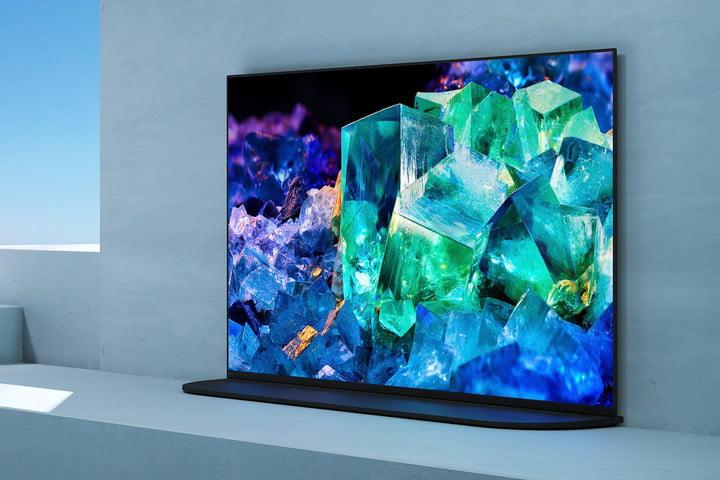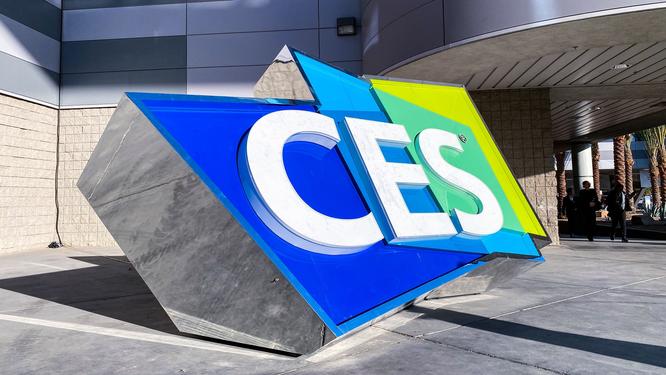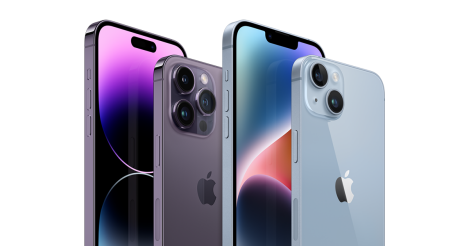CES 2022: The biggest news and announcements so far
The 2022 Consumer Electronics Show is well underway, and despite a few pandemic-related setbacks, tech companies big and small have still shown up in full force and dropped an avalanche of new products. The latest launches offer a glimpse into what’s in store for the year ahead, technologically speaking. Here’s an abridged recap of the big hits and happenings so far, broken down by category. Enjoy!
ContentsHome Theater
If you thought there was no more room for televisions to improve, think again. At CES 2022, TV makers have outdone themselves and taken giant leaps with new technologies such as MicroLED. Though LG and Samsung grabbed the lion’s share of headlines with their refreshed range of televisions, it was Sony that claimed the prime spotlight with the world’s first QD-OLED TV. The rest of the brands, on the other hand, focused more on offering more at less. TCL, more specifically, wants to sell you a monstrous 98-inch 4K TV for a cool $8,000.
You might never have to charge Samsung’s latest Eco Remote yourself. In addition to solar abilities, the remote can collect your router’s radio waves and turn them into energy. You can also top it up with indoor and outdoor light. It will be available later this year in black and white options.
Sony beat LG and Samsung to launch the first consumer Quantum Dot OLED TV. Jargon aside, this technology — developed, in fact, by Samsung Electronics — morphs the best of OLED and quantum dot technology to produce unparalleled picture quality, with perfect blacks and higher brightness.
Although Sony has yet to announce the pricing and availability of its QD-OLED televisions, it did share a handful of specs. They’ll be available in 65-inch and 55-inch sizes at 4K resolution and come equipped with top-of-the-line hardware, including built-in cable management, variable refresh rate, and a pair of HDMI 2.1 ports.
LG is storming the CES show floor with a gargantuan 97-inch OLED television and teased a 136-inch 4K HDR MicroLED TV. Although these display technologies continue to remain best in class, it’s the more practical additions that caught most people’s eyes. Its most premium 4K OLED TVs, for instance, can now sustain higher brightness for longer periods without negative effects, thanks to a refreshed thermal management system.
LG is also working on bringing OLED screens to the masses. It introduced a new 42-inch variant of the high-end C-Series OLED TV, which has the potential to become a crowd favorite among both general TV enthusiasts and gamers.
Victrola’s new retro-style suitcase record player not just has top-of-the-line hardware but also a sustainable build. The company has cut down the amount of material the latest Re-Spin uses by more than 20%. The packaging is also 100% recyclable and has a reduced overall carbon footprint. Apart from that, the $100 Re-Spin has two-way Bluetooth connectivity, an internal pre-amp, and RCA ports.
Samsung’s TVs got bigger, brighter, and its MicroLED displays went “bezel-free” at CES. But since 2021 itself was a groundbreaking year for Samsung, it didn’t feel the need to do much on the hardware front this time. Instead, CES 2022 was all about software for Samsung’s TV division,.
For starters, Samsung revamped its televisions’ home screen to “put all streaming service content into one, easy-to-browse place.” There’s also a new “Watch Together” feature that allows you to plug in a camera or your phone to chat while watching content with your friends and family remotely. Samsung is also bringing NFTs to your living room, and says it will soon let you “browse, purchase, and display your favorite art — all in one place.”
Samsung’s new Freestyle projector can do much more than just project movies. For $900, it features a LED swiveling display that produces images in sizes from 30 to 100 inches — but that’s not all. The translucent lens cap can turn your room into a visual light show or create mood lighting to match whatever music you’re playing.
If you don’t intend to pay ungodly sums of money (tens of thousands of dollars) for LG’s and Samsung’s new giant MicroLED displays, TCL’s latest 98-inch 4K QLED Google TV could be right up your alley. For a little over $7,500, it gets you a 4K panel, HDR, 144Hz refresh rate, and of course, a whole lot of screen.
Computing
Computing giants yet again returned to CES with their boldest ideas, and they did not disappoint. While mainstream brands like Asus pushed forward their quest to build bendable laptops, others grabbed headlines with their otherworldly designs and products. Razer, for one, wants to turn your entire desk into a sci-fi console-like workstation, and PC retailer CyberPowerPC wants to sell you a case that breathes.
Intel has updated its Evo certification to include a range of improvements, including 720p webcams, Wi-Fi 6E connectivity, longer battery life, and of course, its latest-gen 12th-generation Intel processors. Evo is a set of standards manufacturers have to meet to earn Intel’s seal of quality approval.
If HP’s latest Envy Desktop PC didn’t have a logo, you’d probably guess it’s made by Apple. It packs top-of-the-line specs in a sleek, new case featuring a matte silver finish and sharp lines all around. On the hardware front, the most expensive variant comes equipped with an Intel Core i9-12900K, an Nvidia RTX 3080 Ti, and 128GB of DDR4-3200 memory.
HP’s refreshed line of studio monitors for creative professionals bet big on remote work. In addition to professional-grade curved displays, they sport a pop-up 4K webcam, dual 5W speakers, and noise-canceling microphones.
The latest HP Elite Dragonfly G3 is the PC maker’s thinnest and lightest commercial laptop. It also has a 3:2 screen, which can be configured with up to a 2K resolution. Its most crucial upgrade, however, lies in the video conferencing gear. There’s a 5-megapixel camera that can automatically track your face and boost your audio input when you need it to.
Razer is infamous for its wild CES concepts, and this year was no different. Its latest Project Sophia takes the first step to transforming your desk into a console right out of a sci-fi flick. It fits a highly modular computer right into a desk. There are 13 different modules you can customize and swap out for whatever you want, such as chat windows, Qi chargers, monitors, temperature readouts, touchscreen app launchers, and a whole lot more. The CPU itself is magnetically attached to the desk, and you can easily pull it out to install and replace parts.
Lenovo has refreshed its dependable X1 line of ultrabooks at CES 2022 for the “daily demands of hybrid working.” The new ThinkPad X1 Carbon, ThinkPad X1 Yoga, and X1 Nano offer the latest 12th-gen Intel CPUs, better webcams, and a 2.8K OLED screen option. There are also 360-degree far-field microphones for better voice input on calls.
The rise of foldable screens means PC makers can fit more screen real estate in the same, familiar form factor, and Asus’ new 17-inch ZenBook 17 Fold gets the most out of it. You can prop it up in all of its glory to use it as a 17-inch monitor with a wireless keyboard. On the go, you can partially fold it and stick that keyboard on the bottom half of the screen to essentially turn it into a 12.5-inch laptop.
Lenovo is hopping on the two-screen laptop bandwagon. The new ThinkBook Plus Gen 3 has a regular 17.3-inch screen where it’s supposed to be, and on the keyboard deck, there’s another 8-inch tablet-sized touchscreen that you can use to quickly take notes, pull up the calculator, or control your Spotify playback.
Samsung sells some of the most reliable foldable phones. So it’s natural for the South Korean company to try replicating that success with laptops. It’s kicking off with Flex Note, a concept foldable laptop that folds out to become a 17-inch monitor or can be transformed into a 13-inch laptop with a virtual keyboard on one half of the screen.
CyberPowerPC’s latest PC case might be the coolest to hit the market ever — literally. The computing tower has 18 mechanical vents on its front that automatically open and close when it needs to breathe and cool down. The case automates this by actively reading your PC’s temperature and opens or closes the vents depending on how hot it is.
Dell pushed the envelope for how slim its Ultrabook can be with the XPS 13 Plus, but that, unfortunately, meant some unexpected compromises. The XPS 13 Plus’ keyboard has no space between keys and minimal travel. The touchpad isn’t outlined either and responds with haptic feedback. And function row has been swapped out for a Touch Bar-like capacitive touch strip. It’s a radical overhaul — but will it work? We’ll have to wait to find out.
You can easily mistake TP-Link’s new router for a compact drone. The latest Archer AXE200 Omni router has four antennas at the top that automatically fold out and swivel to grab the best possible signal for your devices. It’s compatible with the new Wi-Fi 6E technology and offers triband speed, with a 6Ghz band joining the existing 5Ghz and 2.4Ghz ones.
Intel is catching up with Apple’s silicon prowess. Its new 12th-gen chips are up to 40 percent faster than the previous-generation mobile processor. But most importantly, the silicon maker claims the top-of-the-line i9 processor has “superior performance” compared to Apple’s M1 Max. Intel’s new mobile processors are expected to be available later this year.
Lenovo is rolling out a huge visual refresh for its ThinkPad laptops to target the younger boardroom members. The new Z-Series ThinkPad notebooks come with a sleek exterior and will go on sale in funky colors. They skip Intel and run on AMD’s latest Ryzen Pro processors, boast an edge-to-edge 16:10 screen with a protruding housing for the 1080p webcam, and feature the tiny red TrackPoint.
Asus’ new Windows gaming tablet, the ROG Flow Z13, manages to cram more in a 12mm-thick enclosure than you’d think. You can configure it with Intel’s Core i9-12900H 45-watt processor and Nvidia’s RTX 3050 Ti or connect it to an external GPU via a proprietary port. It has a 13.4-inch display, a kickstand, and a detachable keyboard with per-key RGB backlighting.
You have to see the Samsung Odyssey Ark to believe it exists. It’s the biggest and curviest monitor ever with a 55-inch screen you can even flip vertically to be completely consumed by it. The screen size is adaptable, which means you can adjust it to fit whatever game or program you’re using, and there’s a dedicated dial controller to manage its lighting and interface.
Acer is back with an annual upgrade for its Swift X notebook. Its 16-inch model sports Intel’s first competitive discrete GPU, known as Intel Arc graphics. Other than that, they carry standard upgrades, including 2K screens, Windows 11, plenty of ports, and Intel’s 12th Gen Intel Core processors.
Mobile
The mobile divisions of tech companies are usually quiet at the Consumer Electronics Show. However, this year’s CES did bring us more mobile products than we expected. Most notable of them is a glimpse inside Google’s plan to close the gap on Apple’s walled garden perks and make Android phones work more seamlessly with other devices, such as Windows PCs.
Omnivision’s latest breakthrough is a 200-megapixel camera sensor for phones. The imaging company says it has accomplished that by creating the world’s smallest pixel at 0.61 microns in size. The new sensor is built for premium flagship smartphones, and the first batch of 200-megapixel smartphones is expected to hit the stores this year.
Apple’s tight control over its software has always allowed its devices to easily talk to each other and stay in sync. Google’s 2022 vision borrows one too many ideas from Apple’s ecosystem. Google’s framework for instantly setting up and pairing accessories called Fast Pair will soon extend to the smart home and let you quickly get appliances up and running. Plus, in the coming months, Google’s AirDrop alternative — Nearby Share — will support Windows and allow you to share files across your Android phone, Chromebook, and PC.

Fossil is releasing a limited-edition Razer-branded version of its Fossil Gen 6 smartwatch, but don’t expect any RGB lighting. It’s pretty much identical to the regular variant except for the three new Razer-themed watch faces. The watch maker’s premium Skagen Falster also gets an upgrade, with improvements such as the Snapdragon 4100+ chip and six fresh colorways.
The augmented reality arms race is on and Microsoft doesn’t want to be left behind. It’s partnering with Qualcomm to develop a new, customized Snapdragon augmented reality chip for powering AR glasses within Microsoft’s ecosystems. The alliance, the two giants promise, will lead to “next-generation, power-efficient, very lightweight AR glasses.”
CES is Samsung’s display division’s territory, not mobile. Yet, the latter still managed to dominate the headlines with the release of the new Galaxy S21 FE smartphone. In spite of the $699 price, the Galaxy S21 FE sports top-of-the-line specs, including a variable refresh rate, Snapdragon 888 chipset, a total of four cameras, and a 4,500mAh battery.
Garmin is moving beyond the fitness niche and wants to take a shot at the mainstream smartwatch market. Its new Vivomove Sport watch, at first glance, looks like a standard timepiece but hidden underneath its analog hands is a touchscreen display. It has all the bells and whistles you’d expect from a Garmin wearable, such as the ability to track blood oxygen levels, sleep, and more.
The second iteration of TCL’s display glasses no longer look like something you’d be embarrassed to wear in public. Along with a more normal sunglasses design, the new NxtWear Air are also 30 percent lighter and have a pair of 1080p Micro OLED displays that give the effect of viewing a 140-inch screen from about 13 feet away. TCL’s glasses are only meant to be cinema for your face with in-built speakers and don’t have any AR or VR abilities.
Smart Home
The common theme across the smart home category at this year’s CES is simplicity. Manufacturers have spent the last few years engineering a chip into every one of your home appliances, and now, they’re busy making the experience less of a nightmare. That includes cross-platform frameworks so that appliances are easier to set up and ensure your home isn’t restricted to one platform.
Masonite International showcased its new smart door at CES 2022, which comes preloaded with smart home tech from two of the biggest names in the industry: Ring and Yale. Right out of the box, its system is integrated with power, LED lights, a Ring Video Doorbell, and a Yale smart lock.
Chillax’s new baby monitor comes with more AI chops than you’d expect. With its 1080p webcam, it claims it’s more efficient at detecting when a baby has rolled over and whether they’re sleeping and breathing alright. Plus, it has a privacy switch that instantly cuts its connection to Wi-Fi.
Lenovo’s minimal, smart bedside clock got an upgrade at CES 2022 as well. This year’s most significant difference is that it swaps out Google’s virtual assistant for Amazon Alexa. Apart from that, there are a handful of minor visual changes and a new $30 Ambient Light Dock.
Samsung Home Hub takes the hassle out of managing a smart home. With the Home Hub, you no longer have to fiddle with a gazillion toggles and toolbars to get to the sensor or appliance you’re looking to control. It’s an 8.4-inch touchscreen tablet that acts as a central dashboard for your smart home and uses A.I. to bring the setting you may need at a moment front and center.
Appliance maker Bosch’s adorable new Spexor device can tell if someone has broken into your home without any cameras. It instead takes advantage of a series of noise and motion sensors to sense changes in the environment. In addition to break-ins, it can keep you informed of air quality and temperature updates.
Ecovacs’ new Deebot X1 is the cleaning home robot we’ve all always wanted. Not only does it vacuum and mop like many of its counterparts, but it can also empty its collected dirt and dust as well as clean itself on its own. From its “Omni Station,” it will even refill its tank with clean water — no human intervention required.
The new Homey Bridge is the cross-platform smart home hub of your dreams. Unlike most hubs built to work with only a select few platforms, it can connect to over 50,000 disparate smart home appliances from about 1,000 brands and supports six wireless technologies, including Zigbee, Z-Wave Plus, Wi-Fi, Bluetooth, 433MHz, and Infrared.
Arlo’s new security system solves one of the biggest pain points of monitoring your home: Proprietary sensors. Instead, Arlo’s signature new feature is an all-in-one multi-sensor that you can link to any of eight different functions. It can recognize motion, windows being opened, water leaks, smoke alarms, and more.
Whirlpool has a new software update for its range of smart ovens, which brings not just a feature, but pretty much adds an entirely new appliance to the oven. The company’s Smart Slide-in Gas and Electric Ranges, as well as the Smart Single, Double, and Combination Wall Ovens, can now act as air fryers. All you need to buy is an air fry basket that will be available sometime in early 2022.
Sengled’s latest smart light bulb packs much more than what meets the eye. With a groundbreaking new radar technology, it can measure several vital signs of anyone within range — including sleep quality stats, heart rate, and body temperature. On top of that, it can tell when someone has fallen within a room and automatically call for help.
Schlage has announced the first lock with support for Apple’s Home Key. Introduced with iOS 15, the functionality allows you to store a digital key in your phone or watch and lock or unlock doors with just a tap. Called the Schlage Encode Plus, it will hit the shelves in spring 2022 for $300.
Panasonic is the latest appliance maker to let you cook popcorn by talking to Alexa. Its latest Smart Inverter Countertop Microwave Oven works with Amazon’s voice assistant. Once you set it up, you can simply talk to the microwave to remotely perform over 100 functions.
The Achilles’ heel of investing in a smart home is that you’re stuck within one particular company’s walled garden. A handful of smart home companies have joined hands to solve that and enable interoperability across appliances. Called the Home Connectivity Alliance, it involves American Standard Air Conditioning and Heating, Arcelik, The Electrolux Group, Haier, GE Appliances, Samsung Electronics, and Trane Residential.
Automotive
It wouldn’t be CES without the next generation of automobile tech, and we’re glad to report that this year is no exception. From more giants throwing hats in the ring to a high-speed autonomous car race, CES 2022 has got it all. Not to forget a color-changing BMW car that uses the same tech behind your Kindle’s screen.
The concept version of the BMW iX presented at CES has a party trick like no other: It can overhaul its paint job with a touch of a button. The automobile giant has essentially covered the car’s surface with E-ink — the same tech powering your Kindle’s display — which allows it to instantly switch between three colors, white, black, and gray.
One of the bestselling vehicles in the United States, the Chevrolet Silverado pickup truck, is getting the EV treatment. At CES 2022, the company unveiled the Silverado EV. It goes 400 miles on a single charge and delivers up to 664 horsepower and 780 pound-feet of torque with a zero-to-60-mph time of 4.5 seconds.
Android Auto is largely still stuck in a wired age barring a few car models. Motorola’s new car accessory wants to help. It’s a straightforward USB dongle that is designed to function as a bridge between your car’s wired Android Auto system and your phone. Instead of the vehicle, you connect your phone to the dongle over Bluetooth and wirelessly operate Android Auto.
Sony announced not just a product, but a new subsection of the company that will focus on building commercial electric vehicles: Sony Mobility. In addition to the Sony Vision-S sedan it showcased last year, the electronics giant took the wraps off a new SUV prototype model this time around called the Sony Vision-S SUV. Safety was the centerpiece of Sony’s pitch. “A total of 40 sensors are installed inside and outside of the vehicle to monitor safety,” President and CEO Kenichiro Yoshida said.
It’s hard to take our eyes off Mercedes’ handsome new Vision EQXX concept car. But it’s what’s inside that matters more. The automobile company says it’s the longest-range electric vehicle, capable of going about 621 miles on a single charge. The efficiency, according to Mercedes, comes from improved aerodynamics and a lightweight design instead of just a bulkier battery.
On January 7, a pack of race cars will hit the Las Vegas Motor Speedway with speeds touching 180 miles per hour — and not a single one of them will have a human driver at the wheel. They’ll be competing in the Indy Autonomous Challenge, where university teams from around the world put their algorithms to the test. The event will be livestreamed and you can watch it either on the official website or Twitch.
GM revealed the Chevy Silverado EV line of pickup trucks. Though much has been kept under the wraps so far, it will likely share the design of the latest non-EV Silverado models. It could also have a similar platform as the latest Hummer EV, which means up to 1,000 horsepower and 400 miles of range.
Gaming
The rise of video games, especially during the pandemic lockdowns, has turned the CES show floor into a gaming gear battleground. At CES 2022, gaming processors hit new performance heights (and got cheaper), monitors adapted next-gen tech for better split-second reactions, gaming chairs learned to dance to the beat of your games, and laptops somehow gained more powerful internals in the same, thin form factor.
If you often switch between various gaming consoles and your PC, the new Keymandar Nexus Gaming KVM accessory is for you. It lets you keep all your consoles and PCs plugged into one box and effortlessly switch between them on a shared monitor, keyboard, and mouse.
The Razer Enki Pro HyperSense is like 4D theatre in a chair. The company outfitted it with haptic motors that enable it to vibrate and respond to whatever’s happening in the game you’re playing. That’s not all: It can tilt backward and lift you vertically with around 1G of force. It supports over 2,200 titles and has a response time of less than 5ms.
HTC is adding a wrist tracker to its accessories for the Vive Focus 3 virtual reality headset. It looks like a fitness tracker and tracks your hand’s orientation and movement. One of the use cases HTC highlighted was from a training company called Flaim, which demonstrated it to ensure people were holding a virtual fire extinguisher correctly.
Asus has launched what it’s claiming to be “the world’s first quad-band Wi-Fi 6E gaming router.” The new ROG Rapture GT-AXE16000 has four wireless bands for connectivity, including a 2.4GHz band, two 5GHz bands, and the new, improved 6GHz band. And, of course, it looks like a giant spider with eight antennas on top.
Gigabyte has pulled out all the stops for its latest line of gaming ultrabooks. The top-end Auros 17, in particular, is a beast of a machine, with Intel’s 12th-gen Core i7-12700H processor, as well as up to an Nvidia GeForce RTX 3080 Ti 16GB GPU. Its screen also goes nearly edge-to-edge and supports a staggering 360Hz refresh rate output.
Picoo’s new video game console needs no screen. The screenless console from he educational software company resembles a PlayStation Move controller and is meant to get kids to play outside. It accomplishes that with basic games, which just need an open space. One of the games it offers is Zombierun, in which players run around searching for zombies, and with haptic and sound cues, Picoo lets them know when they’ve encountered one.
Thanks to Nvidia, building high-end gaming PCs will no longer break the bank. Its new RTX 3050 starts at just $249 and offers everything you’d require to play most games. It’s built on the company’s Ampere architecture and supports ray tracing at 60 frames per second (fps) and 1080p. There’s 8GB of GDDR6 memory and third-gen Tensor cores for DLSS upscaling.
Samsung’s latest lineup of smart TVs have a software section called the Gaming Hub, where you’ll be able to browse and play titles from a bunch of cloud gaming services like Google Stadia and Nvidia’s GeForce Now. Samsung says the hub will soon also integrate both PlayStation and Xbox, which means you can play both cloud and local video games with a single controller.
Alienware has a bizarre new idea for a house full of gamers. Its Concept Nyx imagines a dedicated game streaming server in your home that would let you stream multiple games on any screen you want. So say you want to boot up Forza on your television and your sibling wants Uncharted on their monitor, you wouldn’t need to buy two computers. Nyx would theoretically allow you both to stream your own games separately.
AMD has debuted the first processor to take advantage of the 3D V-Cache technology and claims it’s the “world’s fastest gaming processor.” The 3D V-Cache enables AMD to stack the cache on top of the chip and fit in an additional 64MB of cache. Compared to its predecessor, the Ryzen 5800X3D delivers up to a 15% improvement in games at 1080p.
Alienware has already managed to engineer Samsung’s latest QD-OLED display tech into a gaming monitor — and after seeing it in person, we have to admit the results are impressive to say the least. Apart from the enhanced picture quality, the new 34-inch monitor can reach a peak brightness of 1,000 nits and features a resolution of 3440 x 1440.
HyperX’s new Cloud Alpha has the longest battery life of any gaming headset we’ve ever seen. It’s rated to last about 300 hours in one go and is set to hit retail in February for $200. What’s more, it offers 50mm drivers that are lighter on your ears. There are also memory-form earcups and a detachable microphone.
Razer’s Blade series of gaming notebooks are now more capable than ever, thanks to Intel’s 12-gen CPUs and Nvidia’s upgraded GeForce RTX 3070 Ti and TX 3080 Ti GPUs. The screens on the Blade 15 and Blade 17 also go up to 144Hz refresh rates and there’s a larger 82-watt-hour battery on the latter.
MSI’s latest gaming laptops are powered by Intel’s 12-gen chips and Nvidia GeForce RTX 3080 Ti graphics card. But their highlight is the addition of a Phase Change Liquid Metal Pad. The liquid metal remains a solid paste solution over the CPU until 58 Celsius, after which it melts to be more efficient at managing heat. It’s a technology several manufacturers have already adopted.



